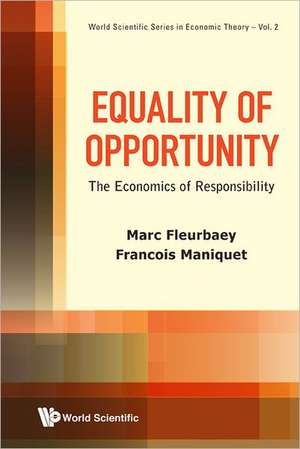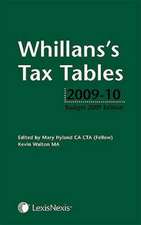Equality of Opportunity: World Scientific Series in Economic Theory, cartea 01
Autor Marc Fleurbaey, Francois Maniqueten Limba Engleză Hardback – 13 mar 2012
Preț: 770.88 lei
Preț vechi: 940.10 lei
-18% Nou
Puncte Express: 1156
Preț estimativ în valută:
147.52€ • 160.19$ • 123.92£
147.52€ • 160.19$ • 123.92£
Carte tipărită la comandă
Livrare economică 22 aprilie-06 mai
Preluare comenzi: 021 569.72.76
Specificații
ISBN-13: 9789814368872
ISBN-10: 9814368873
Pagini: 309
Ilustrații: black & white illustrations, figures
Dimensiuni: 147 x 229 x 23 mm
Greutate: 0.59 kg
Editura: WORLD SCIENTIFIC
Seria World Scientific Series in Economic Theory
Locul publicării:New Jersey, United States
ISBN-10: 9814368873
Pagini: 309
Ilustrații: black & white illustrations, figures
Dimensiuni: 147 x 229 x 23 mm
Greutate: 0.59 kg
Editura: WORLD SCIENTIFIC
Seria World Scientific Series in Economic Theory
Locul publicării:New Jersey, United States
Descriere
This book is a collection of articles written by the two authors on the topic of equality of opportunity. All articles build on the idea that a just society should equalize the resources that determine the opportunities agents face in order to follow their goals. Resources are either external, like financial resources, or internal, like preferences or skills. The authors propose to define "equality of opportunity" as the combination of ethical principles of compensation and responsibility. The principle of compensation requires external resources to be used to compensate low-skilled agents (considering that inequalities due to skill differences are unjust). The principle of responsibility requires external resources to be allocated without regards to inequalities due to differences in preferences (considering that these inequalities are not unjust). The articles present different ways of combining the two principles in different economic contexts.
The book offers many possible aspects of the analysis of equality of opportunity, ranging from axiomatic discussions in abstract compensation models, to the design of redistribution policies in concrete labor income taxation models.




















